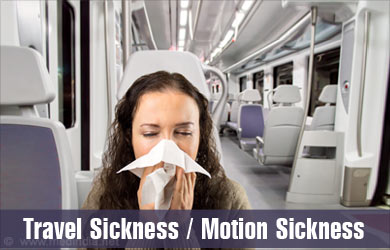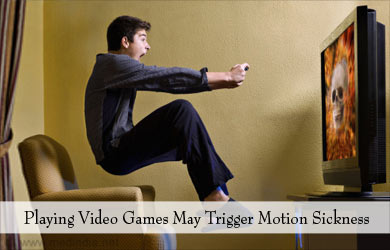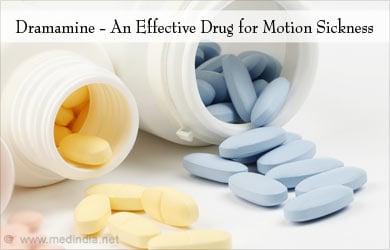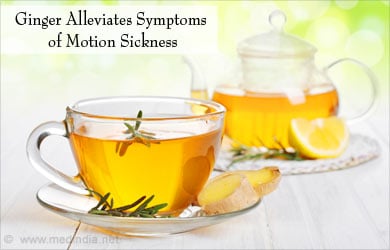- Motion Sickness - (http://wwwnc.cdc.gov/travel/yellowbook/2016/the-pre-travel-consultation/motion-sickness)
- About Motion sickness - (https://en.wikipedia.org/wiki/motion_sickness)
- Benign Paroxysmal Positional Vertigo (BPPV) - (http://www.entnet.org/content/dizziness-and-motion-sickness)
- More on Motion sickness - (http://www.nhs.uk/conditions/motion-sickness/pages/introduction.aspx)
- Motion Sickness - (https://www.nlm.nih.gov/medlineplus/motionsickness.html)
- Motion sickness: First aid - (http://www.mayoclinic.org/first-aid/first-aid-motion-sickness/basics/art-20056697)
- Information About Motion sickness - (https://www.betterhealth.vic.gov.au/health/healthyliving/motion-sickness)
What is Motion Sickness?
Motion Sickness is an uncomfortable feeling of nausea and dizziness leading to vomiting that is sometimes experienced during traveling. The condition tends to affect some individuals more than others making travel for the person difficult and sometimes embarrassing.
The cause of this sickness is due to the physiological responses of the body to a motion by sea, car, train, bus or aircraft. Motion sickness is also called as travel sickness or kinetosis.

What are the Causes of Motion Sickness?
Motion sickness is triggered by an imbalance between the visual system and the vestibular system in the body. The vestibular system consists of channels and fluids in the inner ear that give the brain a sense of motion and balance.
The brain sends information about the object one sees while moving to the eyes and the inner ear. In motion sickness, the inner ear detects this movement and transmits it to the brain, but the eyes tell the brain that everything is still. If there is a conflict in these signals to the brain by the eyes and ears, it can lead to an imbalance in the brain triggering nausea, vomiting and dizziness.
What are the Risk Factors of Motion Sickness?
Anybody can develop motion sickness by stimuli to the vestibular system. But people who are more easily vulnerable to motion sickness include,
- Age: Children in the age group of 2–12 years are especially susceptible to motion sickness.
- Gender: Women are more likely to have motion sickness, especially when pregnant or menstruating.
- Migraines: People who get migraine headaches are more prone to motion sickness.
- Medication: Common drugs can worsen nausea of motion sickness.
What are the Symptoms of Motion Sickness?
The prominent symptoms of motion sickness include,
- Nausea
- Vomiting
- Dizziness
- Pale skin
- Increased salivary secretion
- Rapid breathing
- Fatigue
- Sweating
- Headaches
- Migraine dizziness
Mark Twain said about sea sickness -
"At first you are so sick you are afraid you will die, and then you are so sick you are afraid you won't die."

What are the Different Types of Motion Sickness?
Depending upon the cause, motion sickness can be referred to as -
- Sea sickness,
- Car sickness,
- Air sickness,
- Bus and coach sickness
- Helicopter sickness
- Train sickness
- Space sickness,
- Amusement park ride and sport sickness due to centrifuges,
- 3D movie, video games-related sickness, and simulator
It can be broadly categorized into three categories namely,
1. Motion sickness caused by motion that is felt but not seen - car, sea, air sickness
Car sickness occurs when the eyes mostly see the interior of the car which is motionless while the vestibular system of the inner ear senses motion as the vehicle goes on the road.
Sea sickness occurs while on a ship, especially if the sea is choppy. This affects more individuals than car sickness. New cadets taking up sea faring professions sometimes go through sea sickness period before they stabilize. Sleepiness can be the first sign of this sickness. This is followed by nausea, dizziness and vomiting. Opting for a river cruise is an alternative, where motion sickness is almost zero.
Air sickness occurs just like car sickness where the movement in the aircraft is not seen by the eyes as it looks only at the stable interiors while ears hear the sound of the moving plane. It occurs more frequently if there is severe air turbulence due to bad weather.
2. Motion sickness caused by movement that is seen but not felt - video games-related sickness
Motion sickness can also occur while playing video games. The eyes see the motion on the screen while the ears do not sense any motion. It can cause a headache, nausea, dizziness and sometimes it can last for more than 4 hours or reoccur as flashbacks.

3. Motion sickness is caused when both systems detect motion but they do not correspond - Space sickness, Amusement park ride and sport sickness due to centrifuges -
Centrifuges are rotating devices that are often used in parks and entertainment industry or in 3 or 4D motion pictures. This can induce motion sickness wherein both the device and the body will be in motion but both the eyes and the ears do not send any signals to the brain, triggering motion sickness.
Space sickness is a condition that travelers experience due to their inability to adapt to weightlessness. This can be attributed to motion sickness, visual illusions and disorientation. The "space sickness" or Space Adaptation Syndrome (SAS) is experienced by about half of all astronauts during the first few days of their space voyage. In a study it is found that among the 79 Space Shuttle missions from USA, that almost 50% of the astronauts used some medication for relief of space motion sickness.
How do you Treat Motion Sickness?
Motion sickness is a temporary condition wherein the condition disappears once the movement is stopped. Even in its most severe form, it is not a life threatening condition. Symptoms of motion sickness can be treated using over-the-counter drugs, patches, acupressure bands and some simple home remedies.
Medication:
Over-the-counter drugs can treat motion sickness
- Dimenhydrinate (Dramamine)
- Cyclizine (Marezine)
- Meclizine (Bonine)

Medicines for nausea are called antiemetic drugs. These are antihistamines that are effective against motion sickness
- Dimenhydrinate must be taken every 4-8 hours
- Meclizine works best when taken 1 hour before travel
- Cyclizine works best when taken at least 30 minutes before travel
Transdermal Patch:
A drug called Scopolamine is effective against motion sickness. It can be used as a transdermal patch or as a tablet. The patch can be placed behind the ear for 6 - 8 hours before travel. It is long-lasting by releasing a steady dose of medication over three days. But a doctor prescription is necessary to determine its use as a patch or a tablet.
Home Remedies
Ginger is said to be effective against motion sickness. It can prevent motion sickness in women during pregnancy. Ginger can alleviate symptoms of motion sickness especially nausea. Drinking a cup of ginger tea will benefit people with nausea. But make sure ginger is not taken along with any drugs for motion sickness as it can worsen the condition. Ensure proper food choices are made during traveling to avoid motion sickness.

Acupressure Bands:
Acupressure can be effective against motion sickness. By applying gentle pressure on specific points, it can reduce symptoms of nausea and vomiting caused due to motion sickness. Use wristbands where it applies pressure to a point on the wrist, it can reduce symptoms of nausea.
If you are prone to such sickness it is best to take some advance preventive measures.







